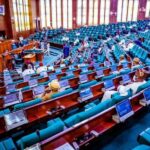
THE declaration recently by the Attorney-General of the Federation, Lateef Fagbemi, that the government would not “name and shame” identified financiers of terrorism entrenches the missteps of successive Nigerian administrations in their response to criminality. His explanation that this could “jeopardise further investigation or apprehension of others,” is neither adequate nor convincing. President Bola Tinubu should depart from the politicisation and hesitancy of his predecessors that allowed terrorism and banditry to flourish and push the country towards state failure.
Security of lives and property is the first duty of the state. This entails the concept of ‘Crime and Punishment’ that undergirds a society. Legal experts cite deterrence, retribution, prevention, and reformation as objectives that require a sovereign state to ensure that crime and criminals are not allowed to overrun the society.
Nigeria’s governments however are weak in enforcement, and given to selective application of the law, and the politicisation of insecurity.
These have been evident in the response of successive federal administrations to the raging terrorism, banditry, and Fulani herdsmen rapine. Fagbemi’s hesitancy raises anxiety that Tinubu may follow that pattern.
Speaking at the 27th Inter-Governmental Action Group Against Laundering in West Africa ministerial committee meeting in Abuja, Fagbemi did not elaborate on his anti-shaming-and-naming stance. But significantly, he referred to “identified” financiers of terrorism.
Once suspects are identified however, investigation should be swift. The excuse that naming suspects could harm ongoing investigations is trite. This is standard law enforcement practice. Investigators will normally not tip off suspects that they are under surveillance until enough evidence for their arrest and prosecution has been gathered.
No one expects Nigeria’s investigators to do otherwise. But bitter experience tells Nigerians that their government has never been keen to prosecute terrorists and their financiers. Instead, they proffer lame excuses.
In September 2021, the United Arab Emirates government publicly named six Nigerians among 38 individuals and 15 entities supporting the virulent Boko Haram Islamist terror group. The six were tried and sentenced to jail terms ranging from 10 years to life in the Middle-Eastern country. Other countries promptly imposed sanctions on all 38.
But Nigeria, the primary victim of the Boko Haram terror, prevaricated. The UAE provided it with the identities of over 400 terror financiers in the country, including many bureaux de change operators. The then AGF, Abubakar Malami, promised repeatedly to name and prosecute them, even claiming to have arrested them. But he and his principal, Muhammadu Buhari, never did.
Unconvincingly, Malami claimed to be “respecting the law,” and said investigations could be jeopardised if suspects were unmasked. In February 2022, the then Information Minister, Lai Mohammed, said 96 secret financiers of Boko Haram and ISWAP had been uncovered. He said 123 companies, 33 BDCs, 26 suspected kidnappers and seven others were identified.
Again, none of these, including the 45 persons Mohammed said were arrested, have been prosecuted.
This is not how to defeat terrorism. Terrorists, bandits, and kidnappers are sustained by funds and money laundering, says the UNODC. It urged the criminal justice system to disrupt their funding, investigate and prosecute terrorist financiers.
In the 14 years that Islamic terrorists have tormented Nigeria, the government has not prosecuted any major financier.
In July, a Swedish court jailed a Kurdish man for attempting to finance terrorism; all 16 Saudi-based terrorism financiers uncovered by Saudi Arabia in 2007 were named and put on trial. Mirsad Kandic, 41, was sentenced to life imprisonment by a New York court in July for funding and provisioning terrorists in Iraq.
Nigeria should promptly and professionally identify, investigate, arrest, and prosecute terror financiers and suspects and disrupt the funding sources of terrorists, bandits, and kidnappers.





